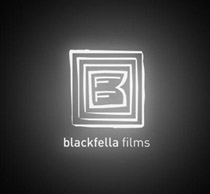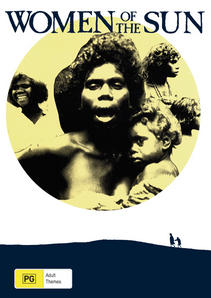 W
W3KND is a community radio station which represents the Indigenous communities within Greater Melbourne, Victoria, Australia. 3KND broadcasts in Melbourne at 1503 on the AM radio band and also streams on the internet. By late 2006, 3KND had the beginnings of an mp3 library. In 2011, 3KND added DAB+ to its broadcast services, which operate 24/7. As at early 2019, the station operator is First Australians Media Enterprises (FAME), formerly the South Eastern Indigenous Media Association (SEIMA). The station provides training for indigenous broadcasters.
 W
WThe Australian Abo Call was the first Aboriginal-focused publication printed in Australia. There were a total of six issues, all published in 1938. It was written and edited by John (Jack) Patten, co-founder of the Aborigines Progressive Association and featured news gathered by Patten on his travels through eastern Australia, and from correspondents nationwide. The newspaper's tagline was "The Voice of the Aborigines".
 W
WAustralian Aborigines Advocate, originally published as The New South Wales Aborigines' Advocate, was a monthly English language magazine originally published in Sydney, Australia.
 W
WBabakiueria is a 1986 Australian satirical film on relations between Aboriginal Australians and European Australians.
 W
WBlackfella Films is a Sydney-based documentary and narrative production company, founded in 1992 by Rachel Perkins. The company produces distinctive Australian short and feature-length content for film and television with a particular focus on Aboriginal Australian stories. Its productions have included the documentary series First Australians, the documentary The Tall Man, the television film Mabo, and the TV series Redfern Now.
 W
WThe Boomalli Aboriginal Artists Cooperative was founded in 1987 in the Sydney suburb of Redfern, New South Wales. Among the legacies of the cooperative are the Deadly Awards for achievement in the Indigenous Australian community, which have occurred annually from 1995 to the present. The 20th anniversary of the cooperative was celebrated in 2007 with an exhibition at the Art Gallery of NSW.
 W
WCleverman is an Australian television drama program based on an original concept by Ryan Griffen. The series premiered on 1 June 2016 on SundanceTV in the United States and 2 June on ABC in Australia.
 W
WThe Koori Mail is an Australian newspaper written and owned by Indigenous Australians since 1991. It is published fortnightly in printed form and electronic copies are available. Owned by five community-based Aboriginal organisations based in northern New South Wales, its profits are spent on community projects and needs.
 W
WNational Indigenous Television (NITV) is an Australian free-to-air television channel that broadcasts programming produced and presented largely by Aboriginal and Torres Strait Islander people. It includes the half-hourly nightly NITV News, with programming including other news and current affairs programmes, sports coverage, entertainment for children and adults, films and documentaries covering a range of topics. Its primary audience is Indigenous Australians, but many non-Indigenous people tune in to learn more about the history of and issues affecting the country's First Nations peoples.
 W
WRabbit-Proof Fence is a 2002 Australian drama film directed and produced by Phillip Noyce based on the 1996 book Follow the Rabbit-Proof Fence by Doris Pilkington Garimara. It is loosely based on a true story concerning the author's mother Molly, as well as two other Aboriginal girls, Daisy Kadibil and Gracie, who escape from the Moore River Native Settlement, north of Perth, Western Australia, to return to their Aboriginal families, after being placed there in 1931. The film follows the Aboriginal girls as they walk for nine weeks along 1,500 miles (2,400 km) of the Australian rabbit-proof fence to return to their community at Jigalong, while being pursued by white law enforcement authorities and an Aboriginal tracker. The film illustrates the official child removal policy that existed in Australia between approximately 1905 and 1967. Its victims now are called the "Stolen Generations".
 W
WWomen of the Sun is an Australian historical drama television miniseries that was broadcast on SBS Television and later the Australian Broadcasting Company in 1981. The series, co-written by Sonia Borg and Hyllus Maris, was composed of four 60-minute episodes to portray the lives of four Aboriginal women in Australian society from the 1820s to the 1980s. It was the first series that dealt with such subject matter, and later received several awards including two Awgies and five Penguin Awards following its release. It also won the United Nations Media Peace Prize and the Banff Grand Prix in 1983.